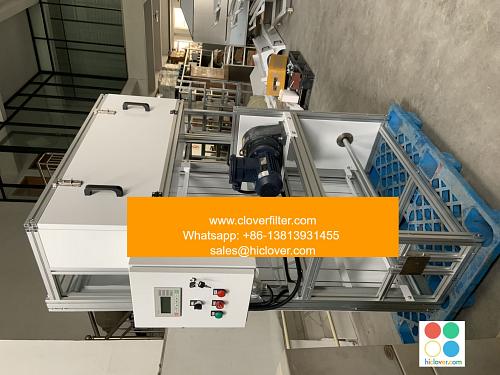Air Filter Systems for Marine Vessels

Air filter systems play a crucial role in maintaining the performance, efficiency, and safety of marine vessels. The harsh marine environment, with its high humidity, salt air, and presence of pollutants, demands specialized air filtration solutions. In this article, we will delve into the world of air filter systems for marine vessels, exploring their key applications, benefits, and technological advancements.
Importance of Air Filter Systems in Marine Vessels
Effective air filtration is essential for maintaining the air quality and engine performance of marine vessels. The air filter system helps to remove pollutants, salt particles, and moisture from the air, preventing damage to the engine and other critical systems. A well-designed air filter system can also help to reduce fuel consumption, emissions, and maintenance costs.
Application Areas of Air Filter Systems in Marine Vessels
Air filter systems are used in various application areas of marine vessels, including:
* Engine rooms: to protect engines and other critical systems from dust, salt, and other contaminants
* Cabin air: to improve indoor air quality and provide a healthier environment for crew and passengers
* Galley and laundry areas: to remove grease, smoke, and other pollutants from the air
* Electronic equipment rooms: to protect sensitive electronics from dust, moisture, and other contaminants
Types of Air Filter Systems for Marine Vessels
There are several types of air filter systems available for marine vessels, including:
* HEPA filters: high-efficiency particulate air filters that can capture 99.97% of particles as small as 0.3 microns
* Activated carbon filters: designed to remove gases, odors, and vapors from the air
* Pre-filters: used to protect primary filters from large particles and debris
* ULPA filters: ultra-low penetration air filters that can capture 99.999% of particles as small as 0.12 microns
Technological Advancements in Air Filter Systems
The air filter industry is continuously evolving, with new technologies and materials being developed to improve the performance and efficiency of air filter systems. Some of the recent advancements include:
* Nano-fiber technology: which provides higher filtration efficiency and longer filter life
* Anti-microbial coatings: which help to prevent the growth of bacteria and other microorganisms on the filter surface
* Smart filter systems: which use sensors and monitoring systems to optimize filter performance and predict maintenance needs
Conclusion
In conclusion, air filter systems play a vital role in maintaining the performance, efficiency, and safety of marine vessels. By understanding the key applications, benefits, and technological advancements in air filter systems, vessel owners and operators can make informed decisions about the selection and maintenance of these critical systems. Whether you are looking to improve air quality, reduce fuel consumption, or minimize maintenance costs, a well-designed air filter system can help you achieve your goals. It looks like you didn’t include a prompt. Please go ahead and provide one, and I’ll do my best to help!

